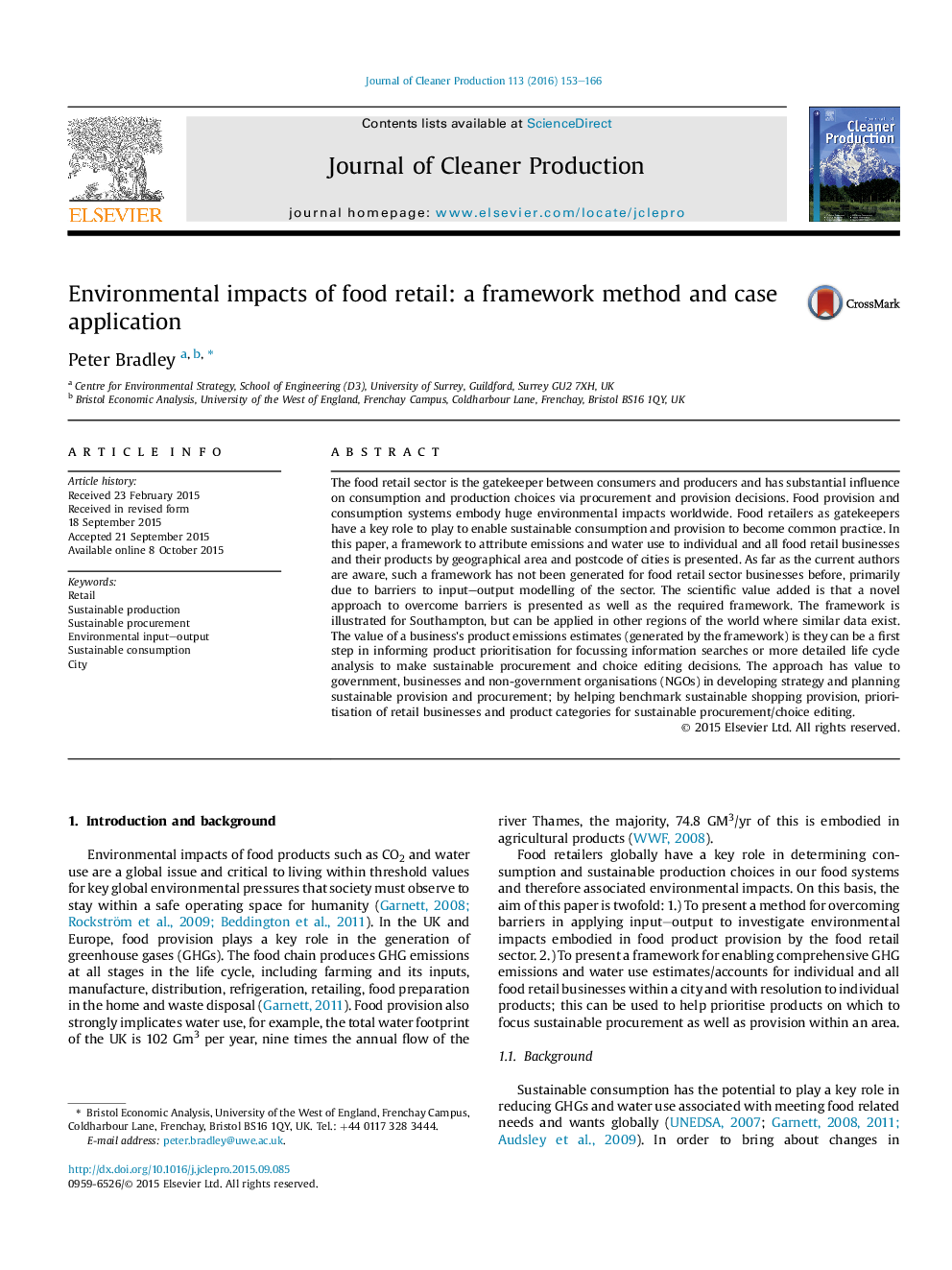| Article ID | Journal | Published Year | Pages | File Type |
|---|---|---|---|---|
| 8102831 | Journal of Cleaner Production | 2016 | 14 Pages |
Abstract
The food retail sector is the gatekeeper between consumers and producers and has substantial influence on consumption and production choices via procurement and provision decisions. Food provision and consumption systems embody huge environmental impacts worldwide. Food retailers as gatekeepers have a key role to play to enable sustainable consumption and provision to become common practice. In this paper, a framework to attribute emissions and water use to individual and all food retail businesses and their products by geographical area and postcode of cities is presented. As far as the current authors are aware, such a framework has not been generated for food retail sector businesses before, primarily due to barriers to input-output modelling of the sector. The scientific value added is that a novel approach to overcome barriers is presented as well as the required framework. The framework is illustrated for Southampton, but can be applied in other regions of the world where similar data exist. The value of a business's product emissions estimates (generated by the framework) is they can be a first step in informing product prioritisation for focussing information searches or more detailed life cycle analysis to make sustainable procurement and choice editing decisions. The approach has value to government, businesses and non-government organisations (NGOs) in developing strategy and planning sustainable provision and procurement; by helping benchmark sustainable shopping provision, prioritisation of retail businesses and product categories for sustainable procurement/choice editing.
Related Topics
Physical Sciences and Engineering
Energy
Renewable Energy, Sustainability and the Environment
Authors
Peter Bradley,
